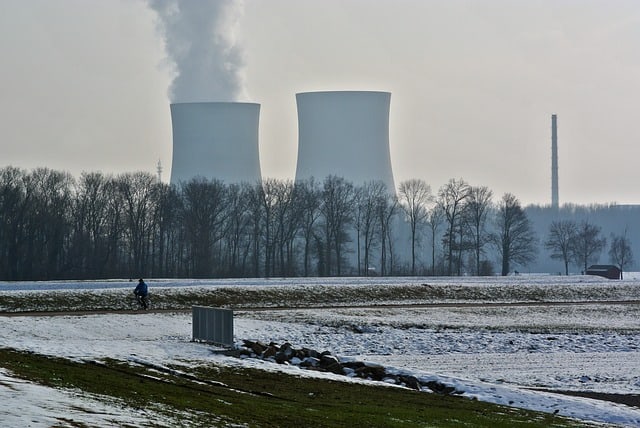Для студентов студентов I курса 3 группы ПСО
на 4 июня 2020
Прочитайте и переведите текст. выпишите в словари незнакомые слова и заучите их. Напишите краткое изложение текста на английском языке:
Radioactive Pollution: Causes, Effects and Solutions
Radioactive pollution occurs when there is presence or depositions of radioactive materials in the atmosphere or environment, especially where their presence is accidental and when it presents an environmental threat due to radioactive decay. The destruction caused by the radioactive materials is because of the emissions of hazardous ionizing radiation (radioactive decay) like beta or alpha particles, gamma rays or neurons in the environment where they exist.
Since the substances are characterized by radiation – because there is a lot of instability of the particles present in the radioactive materials, it can seriously affect, alter and even destroy plant, animal, and human life. The extent of damage or danger posed to the environment depends upon the radioactive material concentration, the energy emitted by the radiation, proximity of the radioactive materials to those exposes, and the radiation type. Herein is a detailed explanation of the causes, effects, and solutions of radioactive pollution.
Causes of Radioactive Pollution
1. Nuclear accidents from nuclear energy generation plants
In the postmodern world, various forms of energy are being discovered. Among them is nuclear energy, which is touted to be the most potent source of energy due to its high latent power. Reports indicate that the high latent power is due to its high level of radiation.
Its use is, therefore, prohibited but research is underway to determine its environmental safety and to put in place the most appropriate precautionary measures for its use. In some cases and countries, however, nuclear power plant accidents like the Fukushima Daiichi nuclear disaster, Chernobyl disaster, and Three Mile Island accident that left many dead and even many more affected by the radiation released.
The use of nuclear missiles and atomic bombs, a form of nuclear energy, in the Second World War not only explains cause but also the damaging nature of radioactive pollution or contamination. The effects of those two strikes in Hiroshima and Nagasaki that prompted the end of the war in 1945 have been seen to date with children born with complications such mental retardation as well as conditions such as autism and other disorders. The number of cancer cases present in the two towns is more than those of the rest of Japan.
3. Use of radio isotopes
Radio isotopes are used to make detectors and in other industrial activities. Isotopes such as uranium have high concentrations of radiation in them. On the other hand, common Isotopes such as carbon containing radioactive material are easily found in water ways through sewage lines.
Since most of the raw sewage is untreated before release, once released, the isotope combines with other compounds and elements in water. This is the same water that people fetch for domestic use. Moreover, fishes use the same water to survive. Consumption of these fish and from contaminated water sources means potential intake of radiation.
4. Mining
Mining mostly involves the excavation of the mineral ores which are then broken into smaller manageable pieces. Radium and Uranium, for instance, are naturally occurring in the environment and are equally radioactive. Hence, mining increases the natural geological processes by moving these materials from underneath the earth to the surface. Other minerals with a hint of radiation are thorium, plutonium, radon, potassium, carbon and phosphorus.
5. Spillage of radioactive chemicals
There have been instances of spillages over oceans when ships hit glaciers or coral reefs and end up releasing chemicals on waterways and in the atmosphere. The majority of these chemicals including petroleum products have a significant level of radiation which can be detrimental to the environment.
6. Tests on radiation
Radiation has been seen to have a lot of interesting properties which has promoted a lot of scientists to conduct tests to learn more about it. It is one of the key elements in the cure and treatment of cancer.
Chemotherapy, a cancer curative health initiative uses radiation to prevent further growth of the cancer cells as well as keep the immune system strong. Despite this, scientists have been exposed to radiation leading to their deaths or to complications.
7. Cosmic rays
These come from outer space to our planet with intense radiation as their nature, therefore, causing radioactive pollution. Gamma rays, for example, are said to have the highest level of radiation and yet, depending on their intensity, some are not visible to the human eye. The quantity with which the rays hit the earth depends on the altitude of the earth and the geographical location.
Грамматика: Согласование времен / Sequence of Tenses
Посмотрите видеоролик:
Выполните следующие упражнения для закрепления материала:
